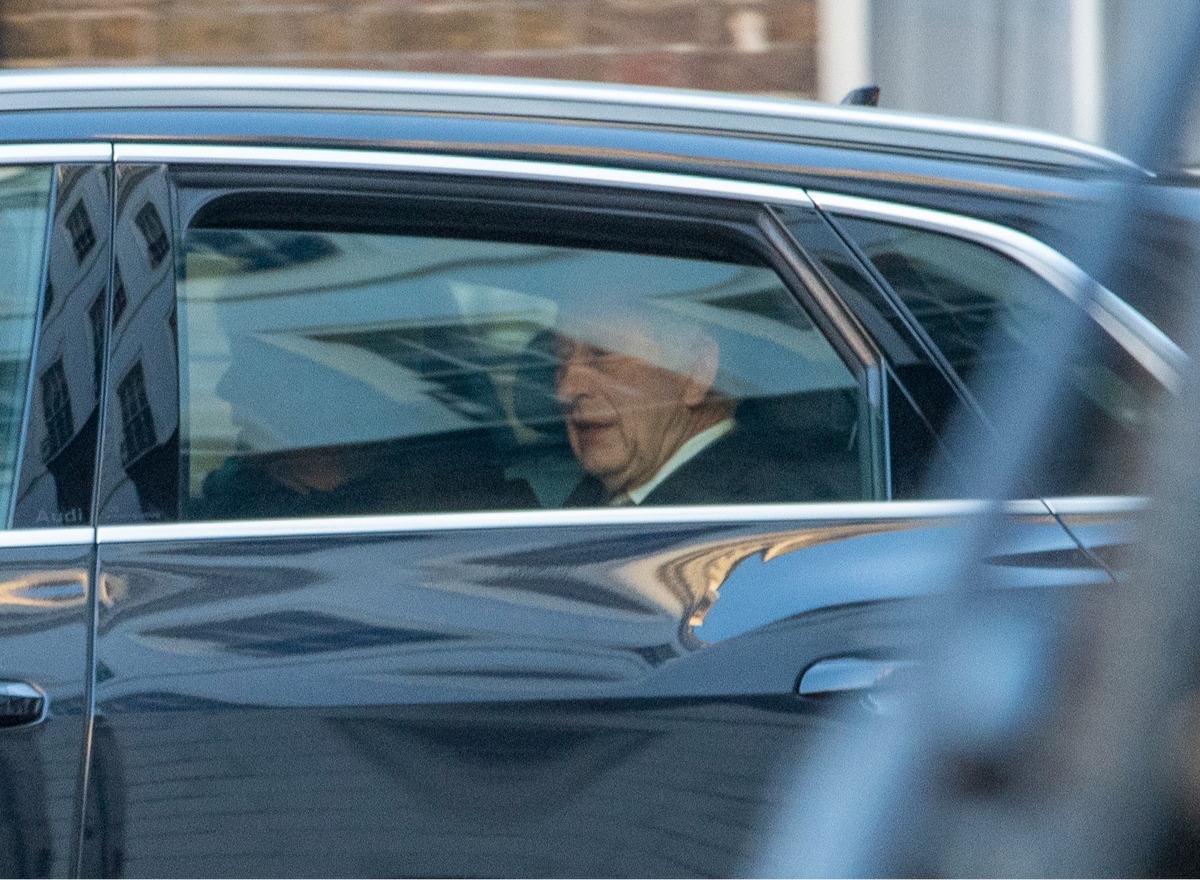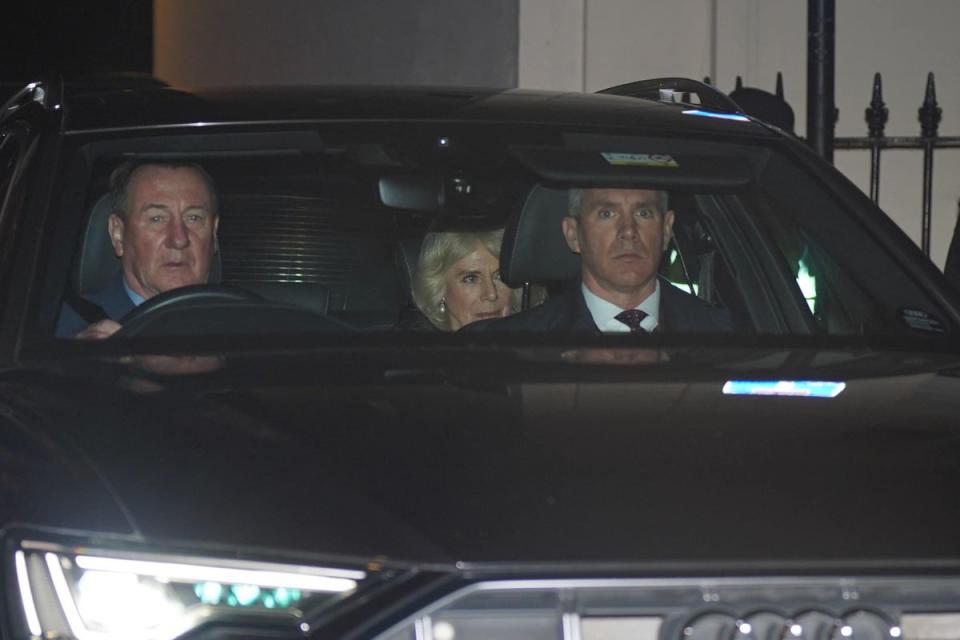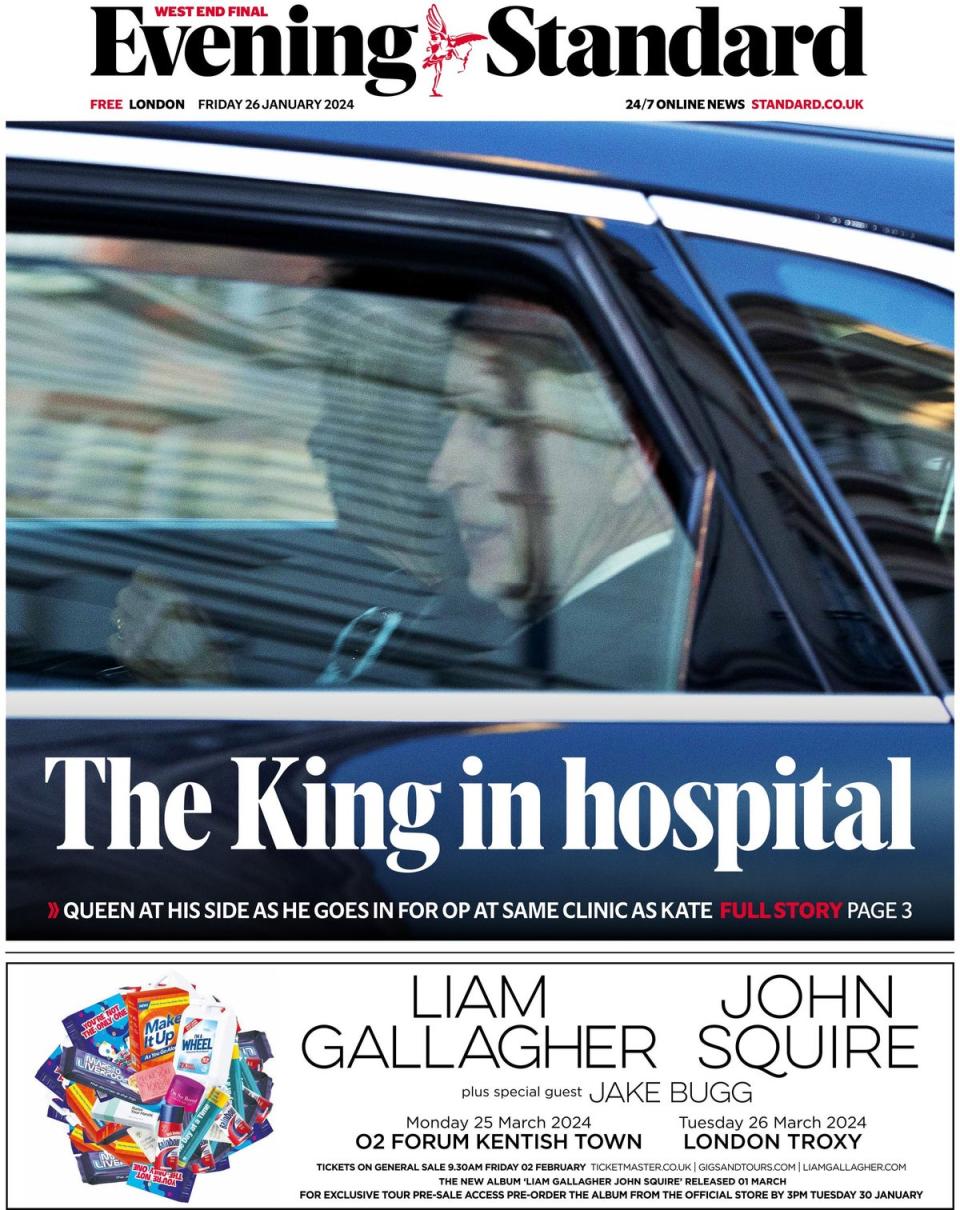King Charles 'doing well' after hospital treatment for enlarged prostate

King Charles is "doing well" in hospital, where he was left by Queen Camilla after undergoing treatment for an enlarged prostate.
Camilla was seen leaving The London Clinic in Marylebone in the backseat of her car just before 8pm.
It had previously been spotted driving to the rear entrance of the hospital at 6.34pm.
The Queen said her husband was "fine" and looking forward to getting back to work.
The King on Friday underwent prostate treatment at the same hospital where The Princess of Wales is recuperating from her own procedure.
It is understood the King, 75, made time to first visit Kate, who is recovering after undergoing successful abdominal surgery last week.
Charles was admitted in the morning and, by Friday afternoon, sources had said he was "doing well".
It is not known how long Charles will spend in hospital or the exact nature of his treatment.
A Buckingham Palace spokesman said: “The King was (on Friday morning) admitted to a London hospital for scheduled treatment.
“His Majesty would like to thank all those who have sent their good wishes over the past week and is delighted to learn that his diagnosis is having a positive impact on public health awareness.”
Prime Minister Rishi Sunak said he "sends the King his very best and wishes him a speedy recovery.”

Charles arrived back in London, from Sandringham in Norfolk, on Thursday afternoon, ready for the procedure.
He was diagnosed with the benign condition on January 17 while staying at Birkhall in Scotland, after going for a check-up because he was experiencing symptoms.
He is understood to have wanted to share the news to encourage other men to get themselves checked.
The King, who only acceded to throne 16 months ago, cancelled engagements, and was urged to rest by his doctors ahead of the corrective procedure.
News of his diagnosis came on the same day that Kensington Palace announced the Princess of Wales was in hospital after undergoing major abdominal surgery.
Kate, 42, remains in The London Clinic and is not expected to carry out official engagements until after Easter, with the Prince of Wales clearing his diary of official duties for the time being.

One in every three men over the age of 50 will have symptoms of an enlarged prostate, which include needing to visit the toilet more frequently, with more urgency, and difficulty emptying the bladder.
Surgery is usually only recommended for moderate to severe symptoms that have not responded to medicine, the NHS website says.
Treatment can include a number of procedures, including removing part of the prostate gland with a laser, water ablation using the pressure of the water to destroy prostate tissue, or urethral lift implants, which hold the enlarged prostate away from the urethra so it is not blocked.
Other options include a prostate artery embolisation, during which tiny plastic particles are injected into blood vessels to shrink the prostate gland by reducing its blood supply.
NHS England said the “enlarged prostate” page on the NHS website received one visit every five seconds on the day the King’s diagnosis was announced, with further huge boosts in visits in the days that followed.

The London Clinic opened its doors on 18 February 1932 after a group of Harley Street doctors set out to “establish a new kind of hospital that would set a standard of healthcare for generations to come.”
It now sees more than 120,000 patients a year, from all over the world. Famous patients over the years have included actress Elizabeth Taylor and future US President John F Kennedy.
Prince Philip was admitted to the clinic for what was described as “abdominal investigations” in 2013, whilst Princess Margaret was treated there in 1980 to have a benign skin lesion removed.
Service is extremely high-end. Patients get their own concierge service while the hospital’s chef serves fish from Cornish boats and meat from Smithfields Market.

 Yahoo News
Yahoo News 
